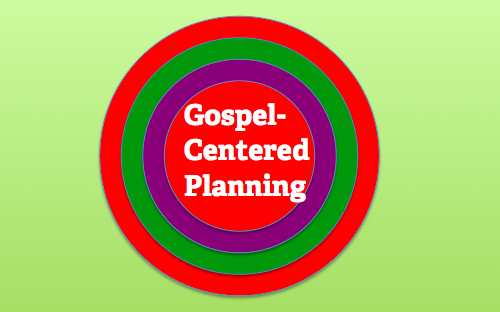
Merry Christmas everyone! This post is about keeping baby Jesus in the middle of our "daily mangers" all year long.
Before my ministry path took me down the consulting road, I served as a pastor of spiritual formation. My first love, theologically speaking, is sanctification. Most of my motivation for going to seminary was to learn how to walk with God (I know, maybe not the best place to learn that). I often couldn't wait to get my coursework done, in order to devour the "spiritual reading" of the scores of mystics and saints from centuries past.
As a guy that most people put in the "organizational box" the roots of my org-based work come from my passion for gospel-centered spiritual formation. For example, I assert that there is no church vision that is not a discipleship vision first, and there is no discipleship vision that is not a Gospel vision first. With the recent popular emphasis on Gospel centrality, i.e, the need for "the explicit Gospel" to use Matt Chandler's phrase, I thought it would be helpful to look at vision and planning this year through the lens of strengthening our emotional connection to the Gospel. How do we rely more substantially on Jesus and the power of His Good News as we do our planning as a church?
#1 Model more prayer time for the adoration of Jesus
How you pray reveals much. And how you pray is an act of leadership. If you are like me, prayer time can naturally drift toward pragmatic stuff of the organization or the unceasing needs of our people. Why not mark your planning time, and team gathering moments early this year with a more lavish experience of praise and exaltation of Jesus. Make sure to prepare your heart first and model this with genuine passion.
#2 Identity and take responsibility for the organizational-cultural idols within your church
It's easily to rely on ourselves when it comes to "feeling good about church" and being satisfied with our job performance. In each culture there are unique expressions of what the leaders may rely on. For example:
- Creativity and recent attendance momentum
- Flagship standing in the denomination
- Hitting a point of financial sustainability as a young church
- Success of a new service or program or campus
- Your prior reputation at a previous church
- Financial security as a church
What are you tempted to add to the Gospel in order to make your church work? What could you be trying to substitute for the Gospel as the functional driver of life-change? Please be assured that there is some answer to these questions. Your opportunity as the leader is to identify them, take responsibility for your role in sustaining them and then encouraging personal and group repentance.
#3 Repent more often and more visibly as a leader with your leaders
This is a tricky one as many leaders have no category for this kind of leadership. It is very freeing once you give it a try. Simply put, you want to find opportunities, at the appropriate "levels" and places to reveal your struggles as a leader and confess your sins as a human being. Remember its not about you or even your leadership- its about the Gospel. One obstacle to taking the Gospel more seriously is taking ourselves too seriously. And the Gospel will have no life and vitality in the organization if the leadership is not letting it expose and restore and give hope amidst the daily grind.
#4 Recalibrate your leadership language
Whatever we love will show itself through the sophistication of our language. I love to mountain bike and I love to fish for smallmouth bass in rivers. I would be glad to unpack the vocabulary of cadence, 29" wheels or head tube angles. I can go all day talking about Rapala and Tiny Torpedo lures, 6-poind test or the pound-for-pound thrill of landing a fish after a topwater hit.
So how is your Gospel fluency? More importantly how do practice using gospel images and phrases each day? How often do you make the Gospel explicit? Here is a powerful reference called "Atonement Grammars" from Tim Keller to get you started. Here is a free book summary from our SUMS tool for Keller's Center Church.
#5 Cultivate urgency
Where the Gospel is clear and strong, urgency will be felt. How can you call your staff or volunteer leaders to respond? How can you mark planning retreats or staff meetings not only with hope but with a sense courage? For example, instead of just talking about a partnership with a local ministry, why not go there, pray for them and give to them and THEN discuss a potential partnership with your staff. As the leader you can create and model a Gospel-centered bias for action.
#6 Invite new accountability
I am amazed and encouraged by the common thread of interest in Gospel-centrality among staff throughout the country. Why not find a buddy to check in with once a month for ideas and encouragement? I bet everyone reading this post has a friend or two at another church or ministry who would enjoy a twelve-month partnership to this end.
#7 Read together as leaders
This year you may want to allocate more time to reading through the gospels. The YouVersion Bible App has a reading plan for this. A great recent book to use (that actually discusses gospel-centered culture in church) is Creature of the Word by Matt Chandler, Eric Geiger and Josh Patterson. Here is a link to some free tools our SUMS free book summary.
